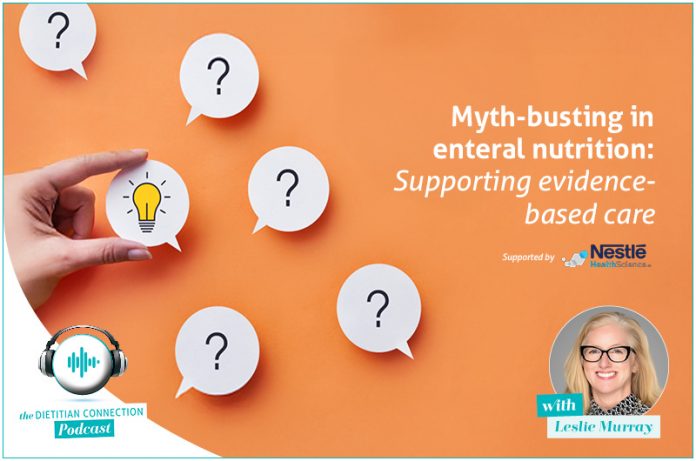In this episode, we’re joined by registered dietitian and Certified Nutrition Support Clinician, Leslie Murray, to clear up some of the biggest misconceptions around tube feeding. Leslie shares evidence-based insights on early enteral nutrition, gastric residuals, and gastrointestinal (GI) intolerance in the tube-fed patient. We also dive into the role of peptide-based formulas and why improved tolerance means patients can benefit from staying on them long term.
Hosted by Kristin Houts
Biography
Leslie Murray, RD, CNSC has 25 years of experience in acute and critical care nutrition. She currently practices in the Surgical Trauma ICU and serves on the Nutrition Support Team at Duke University Hospital in Durham, NC. Throughout her career at Duke, Leslie has been instrumental in advancing nutrition care practices, including the development of perioperative TPN protocols and, more recently, perioperative and periprocedure enteral nutrition protocols. She is passionate about improving medical nutrition therapy across the continuum of care. Leslie is also an experienced speaker, having presented on the topic of Critical Care Nutrition Support at both national and local conferences. She is dedicated to advancing the field by sharing evidence-based strategies and innovations with other clinicians and healthcare leaders.
In this episode, we discuss:
- The benefits of early enteral nutrition
- Non-formula factors that may contribute to GI intolerance
- When to consider a formula switch for your patient
- What peptide-based formulas are and when to use them
- Misconceptions around the costs and insurance coverage for specialized formulas
Supported by
The content, products and/or services referred to in this podcast are intended for Health Care Professionals only and are not, and are not intended to be, medical advice, which should be tailored to your individual circumstances. The content is for your information only, and we advise that you exercise your own judgement before deciding to use the information provided. Professional medical advice should be obtained before taking action. The reference to particular products and/or services in this episode does not constitute any form of endorsement. Please see here for terms and conditions.




